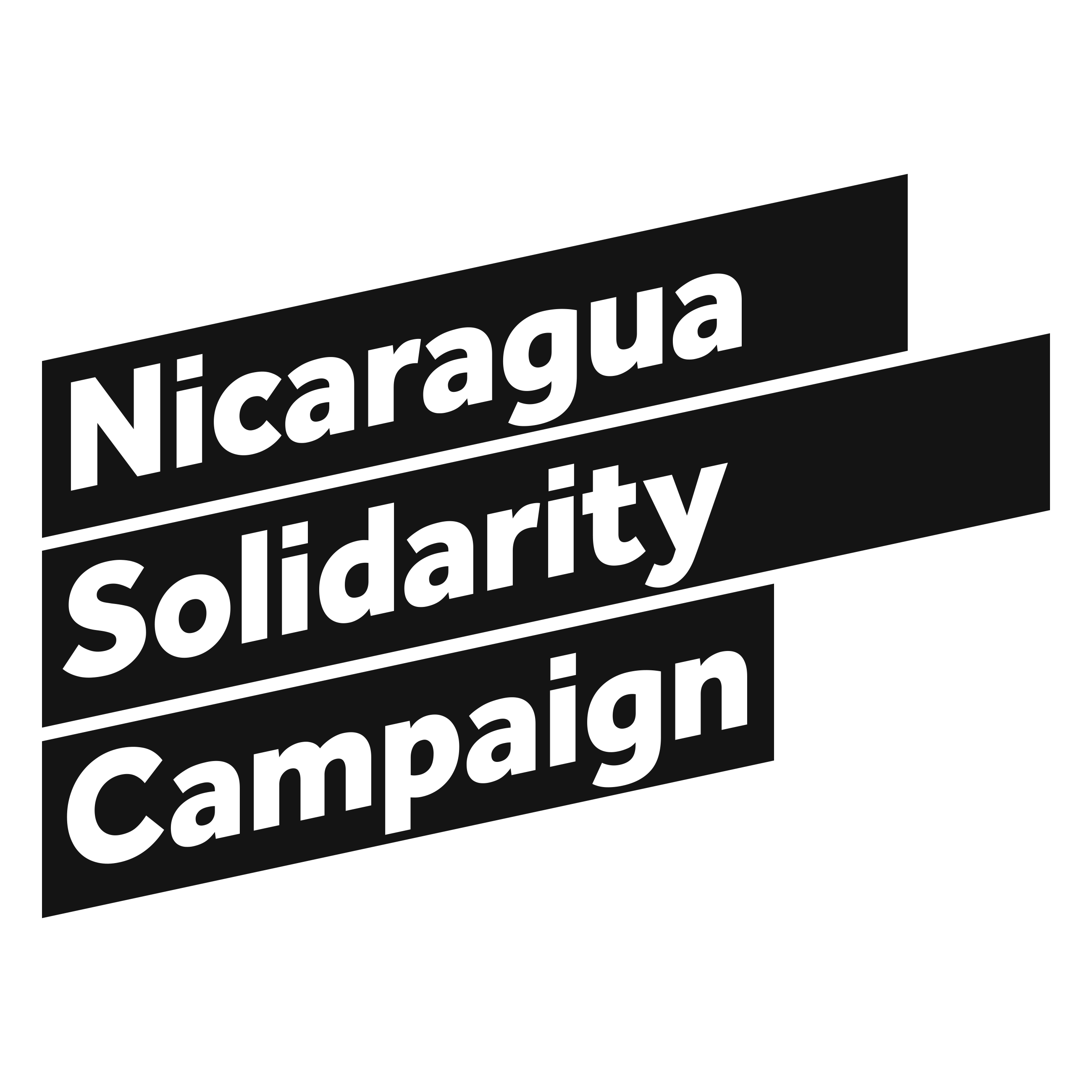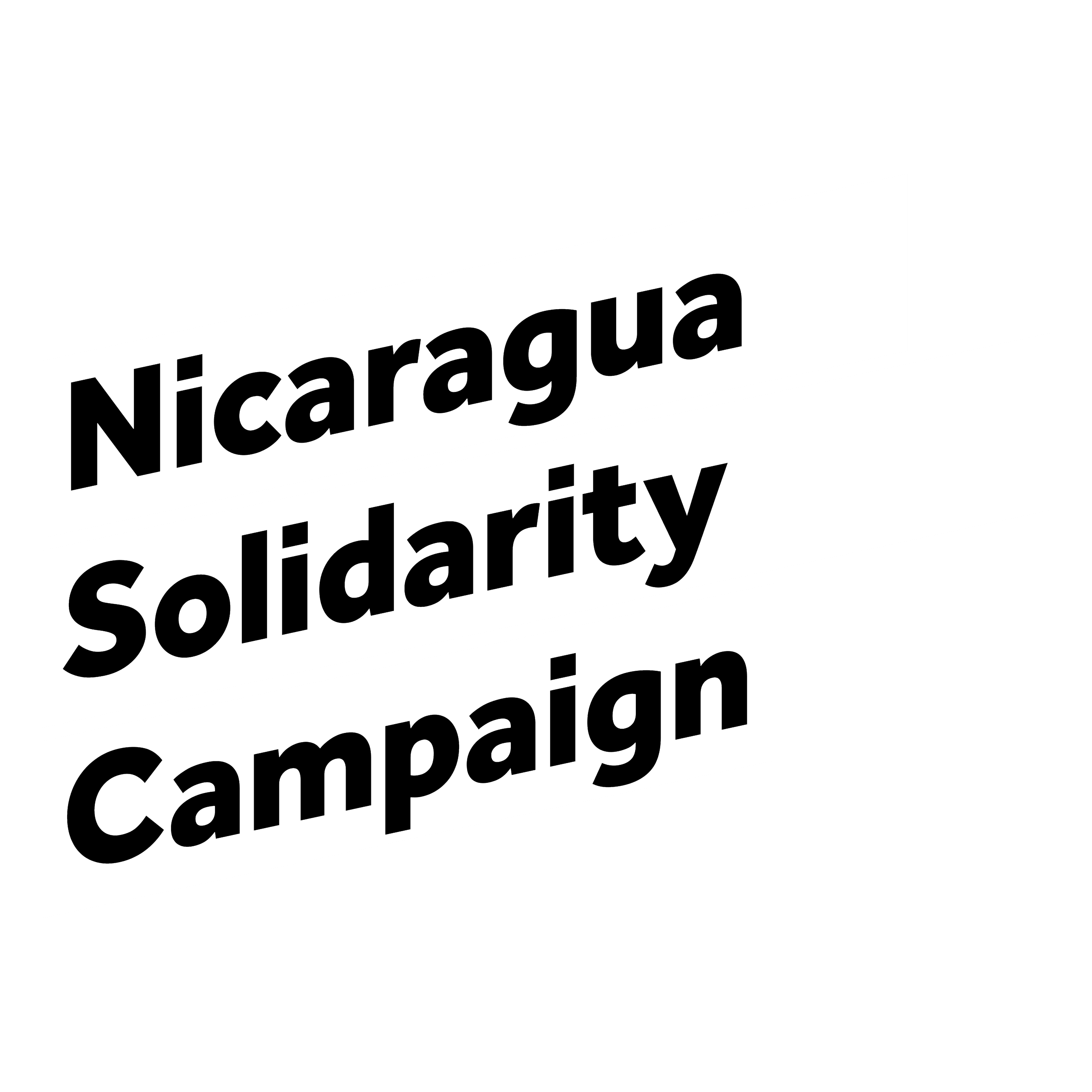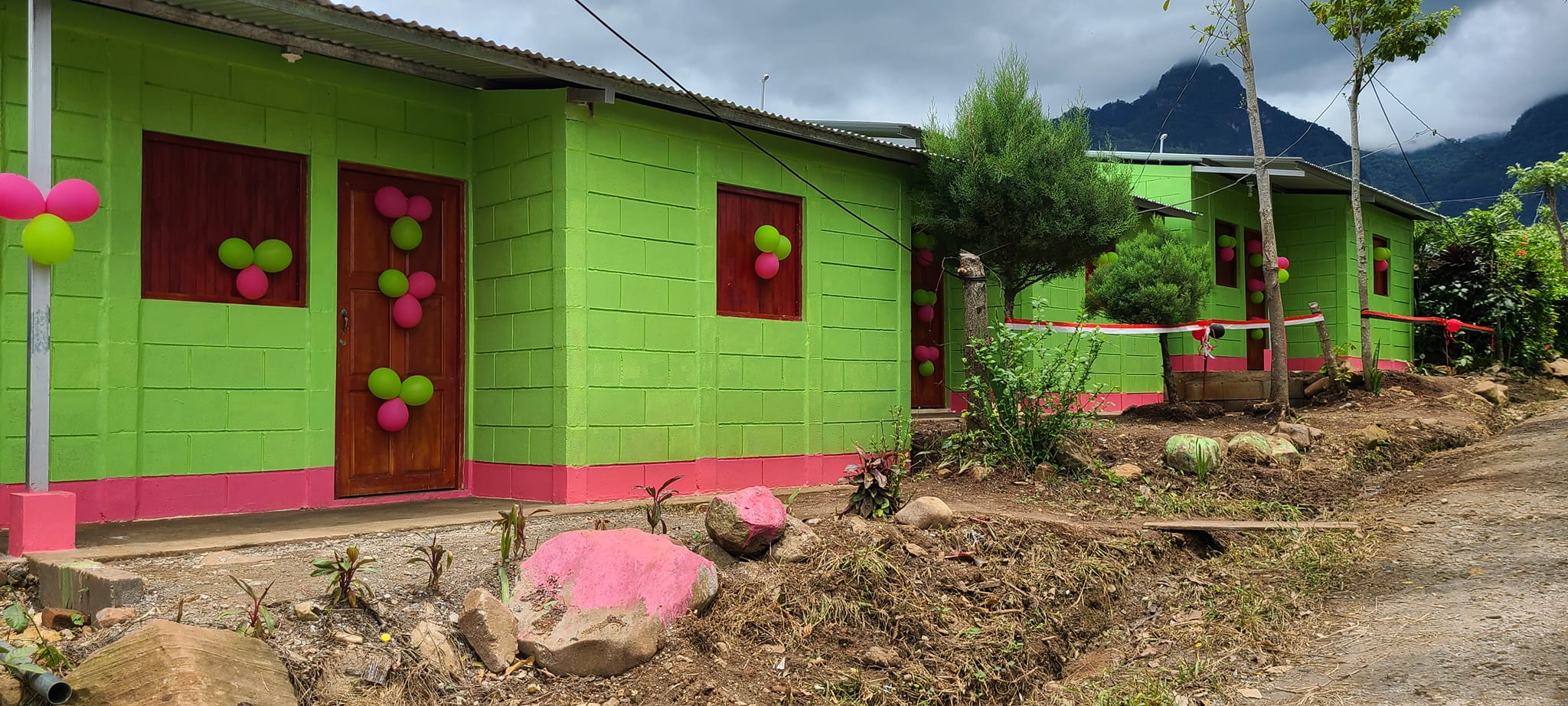
Mission accomplished! Ten homes built the co-operative way
Popular education facilitator *Winnie Narváez Herrera reports on how public institutions and the Victorias de Noviembre housing co-operative have worked together not only to build houses but also to strengthen their local community.
In Latin America, the problem of housing quality is even more serious than the problem of not having a home, and this is made worse by the increasing impact of climate change, violence in some parts of the region and migration.
However, in many ways the small country of Nicaragua, with only 6.5 million inhabitants, is showing a way forward. Social housing is being built at a steady pace by the government through local authorities and now with added support from the People’s Republic of China.
But many of these programmes are not only about constructing houses but also involve local participation that actively promotes community development. This is part of a long tradition of co-operatives in Nicaragua, promoted strongly since the Sandinista Revolution in 1979.
This co-operative model is based on mutual support among members: many hours of voluntary work are put in by those benefiting from a scheme not only to build not only their own houses but those of their neighbours. It’s a co-operative model that works because it’s not just about building homes but also about building community solidarity.
This approach is multilayered. In the northern district of La Dalia, a multidisciplinary co-operative called MULTIPRO working together with the Matagalpa housing cooperative centre, CECOVI, collaborated with a local housing project, Victorias de Noviembre.
With their support and two years of planning and building the co-operative inaugurated its first ten houses in June this year.
In August 2021 members of Victorias de Noviembre started manually removing earth and rocks to prepare the site; in February 2022 they built retaining walls and by the end of 2022 seven houses had been finished.
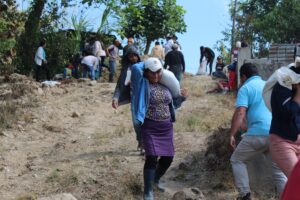
Co-op members carrying bags of cement.
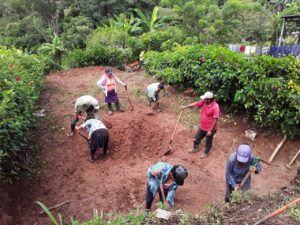
Co-op members preparing land to build one of the ten houses
All this work is based on community participation. Responsibilities are shared between women and men and the co-op: children are get involved lighter aspects of the work.
Some people obviously benefit in the early stages while others are simply contributing their labour. But as one member said: “In the construction phase we all have to be patient, if my house isn’t ready yet this doesn’t mean I’m going to stop working”.
Margini Martínez, president of the co-operative, explains how each stage of construction was carried out: “We organised ourselves into groups of three, working from 7am – 5pm Monday to Saturday although in the case of heavier tasks such as lifting bags of cement, the groups joined together.
In addition to the groups working during the day, others are organised into three committees: one in the warehouse controlling materials, another to organise the day’s work, and a site committee to monitor the quality of the work.
This pattern of working continues throughout the year but with breaks during the coffee harvest, the main source of income for most co-op members.
Together with the commitment of the co-operative itself, the project required co-ordination with different agencies. For example, in order to meet the Housing Ministry’s criteria for social housing’ they needed a separate entity through which to channel the Ministry’s subsidy; in this case, the local mayor’s office.
This guaranteed the provision of some materials and the Ministry made a cash contribution of US$ 25,000. The cooperatives also secured a loan of $34,277 from a fund managed by MULTIPRO. To this amount was also added $14,000 raised a by housing cooperatives in Switzerland and a further $12,000 from a solidarity donation from international social housing networks.
Each member of Victorias de Noviembre contributed $2,148 dollars. Given that the only paid work of most of the members is during the coffee harvest saving this amount required a huge effort.
The multi agency approach means that the homes have been built at a cost which is accessible to poor rural families. The co-operative members will pay just $240 per family each year for ten years at the end of which they will own their houses. Each family will be able to decide when in the year it will make their payments (for example, they may choose to do so after being paid for their coffee harvesting work).
In addition to the financial aspect, the mutual support aspect of the scheme is of vital importance, not only the work by the beneficiaries but also the technical support provided by MULTIPRO which also supports four other co-operatives on a similar basis.
During the construction, the La Dalia mayor’s office and the Housing Ministry also made technical visits to the site, before granting building permits and again on completion.
Another feature of this process was “mutual support days.” These are working days when friends of the co-operative, whether other co-operatives or brigades of university students, visit the site and help in the construction work.
René Ruiz, president of the MULTIPRO cooperative, explains: “A mutual support day was held to celebrate International Women’s Day. The work consisted of shifting materials, filling in trenches and making foundations. Materials were provided by the La Dalia mayor’s office.” Another group prepared food for all those taking part.
June 2023 saw the inauguration of the first ten houses, a celebration organised by MULTIPRO and the co-operative, together with friends who have been part of the process. The mayor’s office and the Ministry of Family Economy also took part.
In the future, the cooperative plans to continue working together towards its wider aims, not just providing homes for its members. For example, it also wants to buy its own farmland.
Although Victorias de Noviembre is just one small co-operative but there are many others in Latin America that are similar. They represent ways of tackling the inequalities in a global housing market that usually favours people who are already well-housed.
*Winnie Narváez Herrera is a popular education facilitator working with ÁBACOenRed /FUPECG supporting co-operatives based in northern Nicaragua
